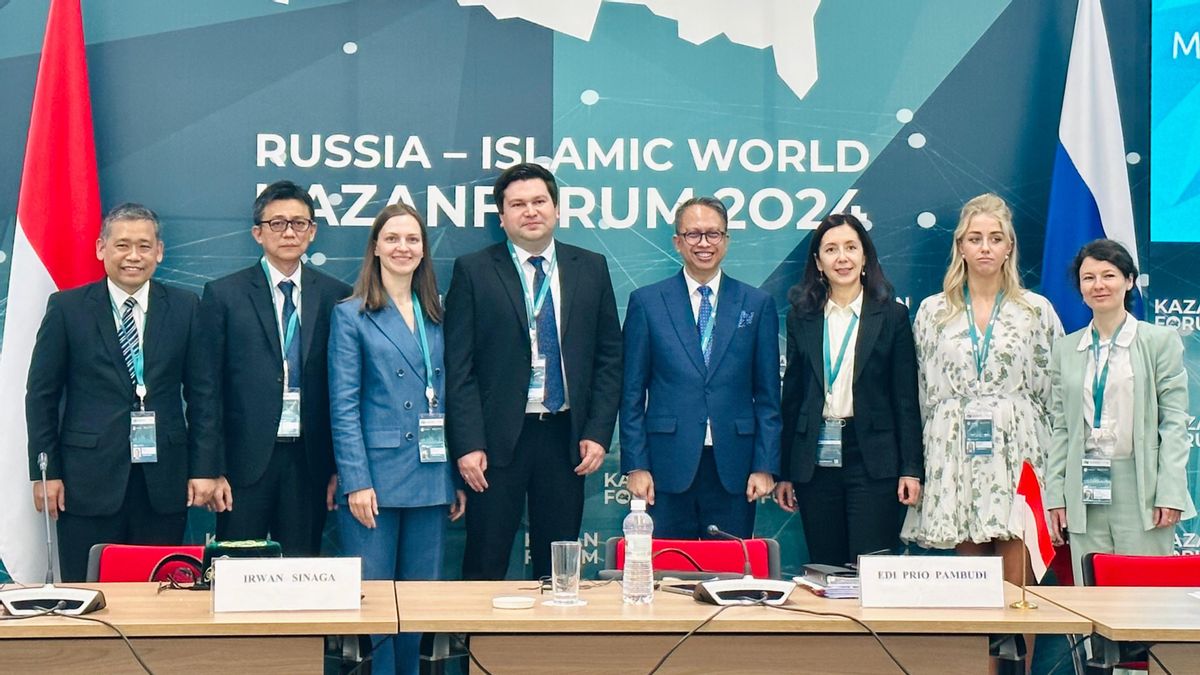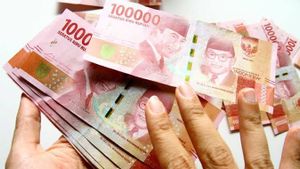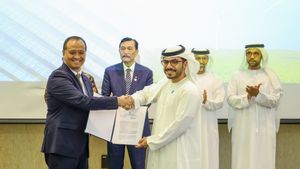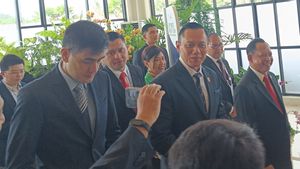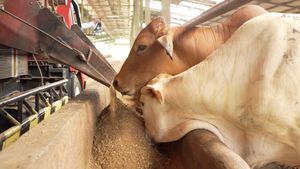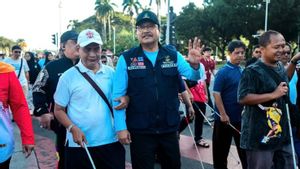JAKARTA - The government and Russia have strengthened bilateral economic cooperation in a number of fields.
Bilateral economic cooperation is one of the important sectors to maintain and improve in order to strengthen the national economy in the face of the various increased risks of global uncertainty that continue to occur today.
On the sidelines of the activity of attending the Russia Halal Expo 2024 which was held in Kazan, the Russian Federation, Deputy for International Economic Cooperation Coordination Edi Prio Pambudi, held a meeting of the Chairman of the RI-Russia Trade, Investment and Industry Working Group.
The Russian delegation was led by the Deputy Minister for Economic Development of the Russian Federation HE Dmitry Volvach.
On this occasion, both parties discussed comprehensively regarding the development of cooperation between the two countries, especially in the fields of trade, industry and investment.
Edi expressed his appreciation for the progress that has been achieved in the implementation of economic cooperation between Indonesia and Russia, and hopes that cooperation between the two countries can continue to be improved in the future.
Furthermore, Edi conveyed, proposals and concerns related to several issues that are still being discussed by both parties.
"Cooperation in the halal sector, which includes the technology, infrastructure and investment sectors, is the substance targeted in the plan for the agreement between the two parties," he explained in his statement, Wednesday, May 22.
In addition, Edi conveyed that the Indonesian government was again concerned about the registration process for several Indonesian Fish Processing Units (UPI) that would enter the Russian market and asked the Russian Government to accelerate the facilitation of the registration process.
On the other hand, Volvo also raised several issues of concern from the Indonesian side, including the export of Russian meat products to Indonesia and pharmaceutical products from Russia.
Volvach hopes that the Indonesian government can consider the export desire of meat products from Russia which has been adjusted to halal certification.
"We also propose to the Indonesian side to discuss establishing a bilateral joint standardization arrangement for pharmaceutical products," said Volvach.
In addition, regulations related to palm oil and coconut products from Indonesia in Russia are also one of the topics that gained the spotlight at the meeting.
Edi said that Indonesian palm oil products have high standards and are in accordance with international standards. Indonesia also regrets the decision to temporarily ban the export of Indonesian coconut products by Russia.
"Indonesia has taken a number of corrective steps and asked Russia to lift the export ban," said Deputy Edi.
Furthermore, the two deputies also discussed efforts to increase cooperation in the tourism sector and accelerate the completion of negotiations from the Indonesia-Ereurarian Economic Union Free Trade Agreement (I-EAEU FTA).
Edi conveyed that the trade agreement with the EAEU is very important for both parties to increase cooperation in the trade sector.
SEE ALSO:
It is hoped that the agreement will also provide benefits to business actors.
"I am sure that the formation of the agreement will be a reference for improving Indonesia's export product and commodity standards as well as EAEU member countries," concluded Edi.
At the end of the meeting, the two parties also agreed to continue communication regarding the schedule for the implementation of the 13th RI-Russia Joint Commission (SKB) Meeting for Trade, Economics and Engineering Cooperation and the 6th Meeting of the Working Group on Trade, Investment and Industry (WGTII) RI-Russia.
The English, Chinese, Japanese, Arabic, and French versions are automatically generated by the AI. So there may still be inaccuracies in translating, please always see Indonesian as our main language. (system supported by DigitalSiber.id)
